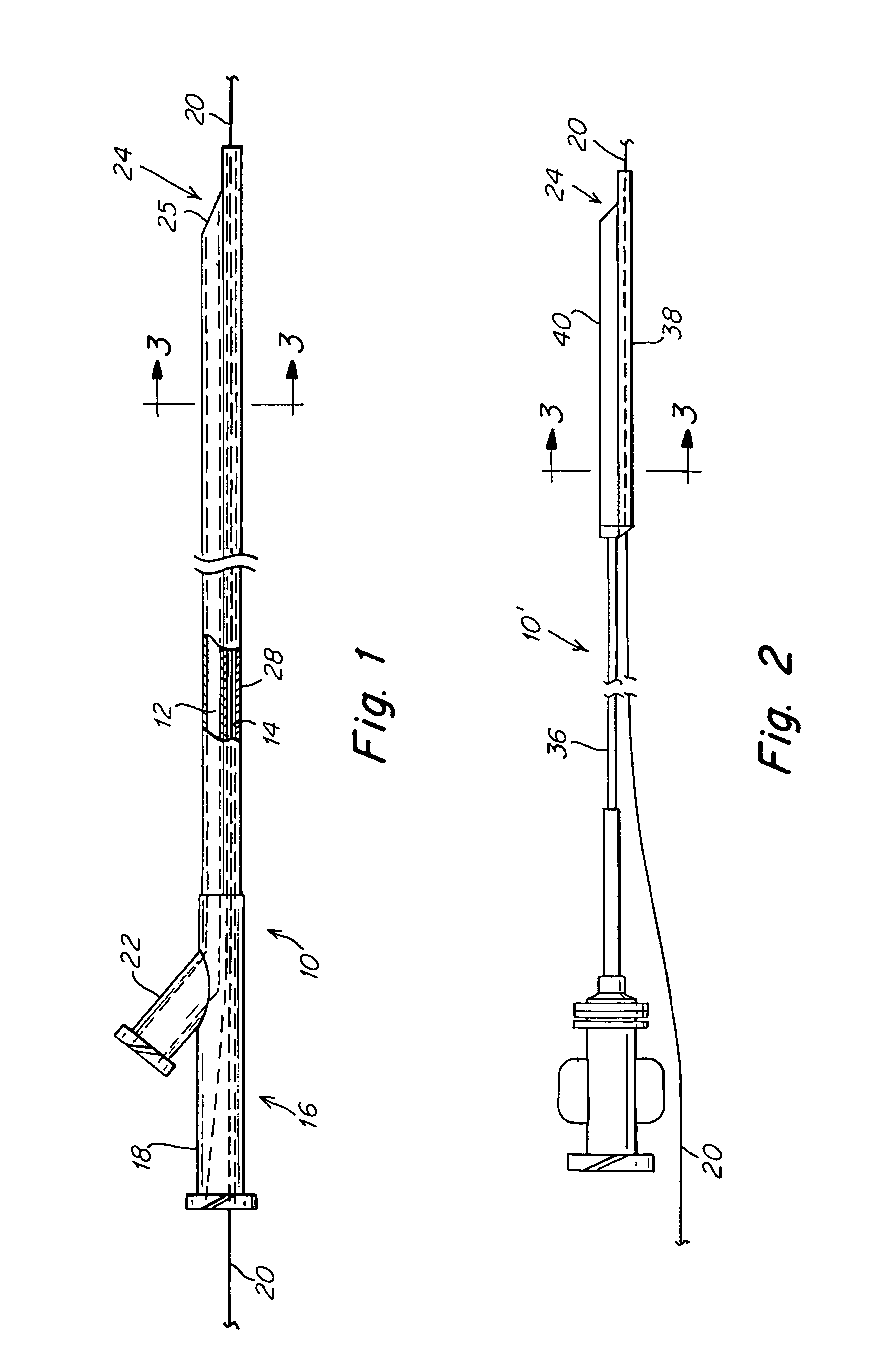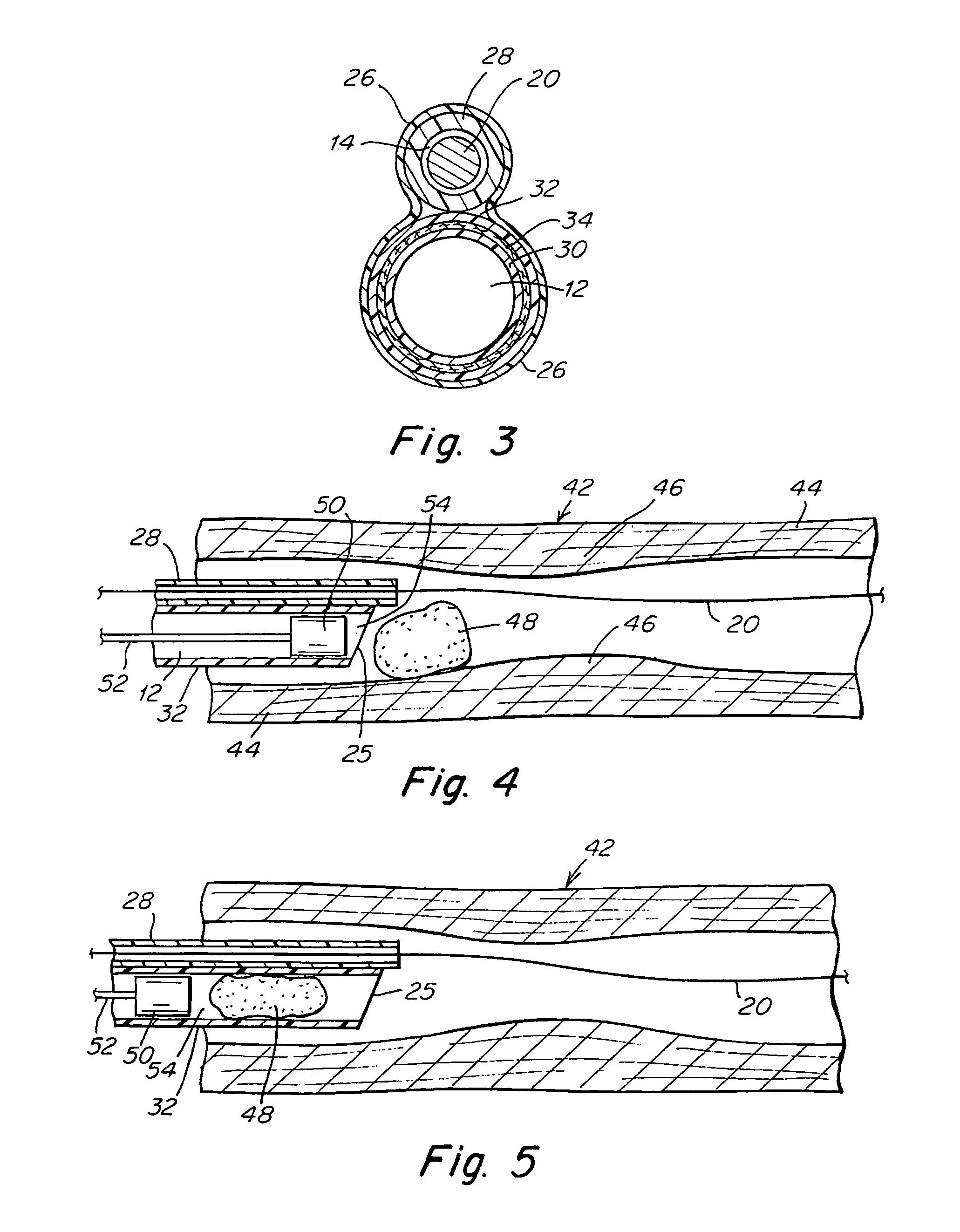Aspiration catheter having an internal vacuum accumulator
a vacuum accumulation and catheter technology, applied in the field of catheters, can solve the problems of reducing the amount of suction developed at the distal tip from that applied, presenting significant medical risks, and reducing the distal tip suction amount, so as to avoid pressure loss and increase the dislodging force
- Summary
- Abstract
- Description
- Claims
- Application Information
AI Technical Summary
Benefits of technology
Problems solved by technology
Method used
Image
Examples
Embodiment Construction
[0024]Specific embodiments of the present invention are now described with reference to the figures, wherein like reference numbers indicate identical or functionally similar elements. The terms “distal” and “proximal” are used in the following description with respect to a position or direction relative to the treating clinician. “Distal” or “distally” are a position distant from or in a direction away from the clinician. “Proximal” and “proximally” are a position near or in a direction toward the clinician.
[0025]FIG. 1 illustrates, somewhat diagrammatically, a two-lumen, elongate catheter 10 having an aspiration lumen 12 and a guidewire lumen 14. Both lumens may extend substantially the full length of the catheter, although in some embodiments the aspiration lumen may be limited to the distal region of the catheter. The proximal ends of the lumens may terminate in a Y-fitting 16, one leg 18 of which receives a guidewire 20 and the other leg 22 communicates with the aspiration lume...
PUM
 Login to View More
Login to View More Abstract
Description
Claims
Application Information
 Login to View More
Login to View More - R&D
- Intellectual Property
- Life Sciences
- Materials
- Tech Scout
- Unparalleled Data Quality
- Higher Quality Content
- 60% Fewer Hallucinations
Browse by: Latest US Patents, China's latest patents, Technical Efficacy Thesaurus, Application Domain, Technology Topic, Popular Technical Reports.
© 2025 PatSnap. All rights reserved.Legal|Privacy policy|Modern Slavery Act Transparency Statement|Sitemap|About US| Contact US: help@patsnap.com



